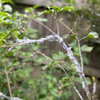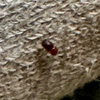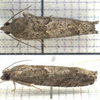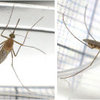Phenethyl Propionate safe for pollinators?
ctlady_gw
10 years ago
I use an "organic" lawn care firm and they have just started offering mosquito treatments using the same product they use ("Tick Killz") for tick control. The active ingredients are phenethyl propionate, cedarwood oil, peppermint oil and ethyl lactate. They assure me this product will affect only mosquitoes, NOT pollinators (bees, butterflies) but I cannot find anything definitive confirming that online -- only a "low toxicity" statement. Does anyone know if misting the yard with this product will negatively impact pollinators (or where I can find out? I've checked EPA, other websites). I've worked hard for a pollinator-friendly garden and would hate to do anything to harm them now! But... the mosquitoes this year are just awful, with all the rain we've had in the Northeast.




saccharum
larry_gene
rhizo_1 (North AL) zone 7
saccharum